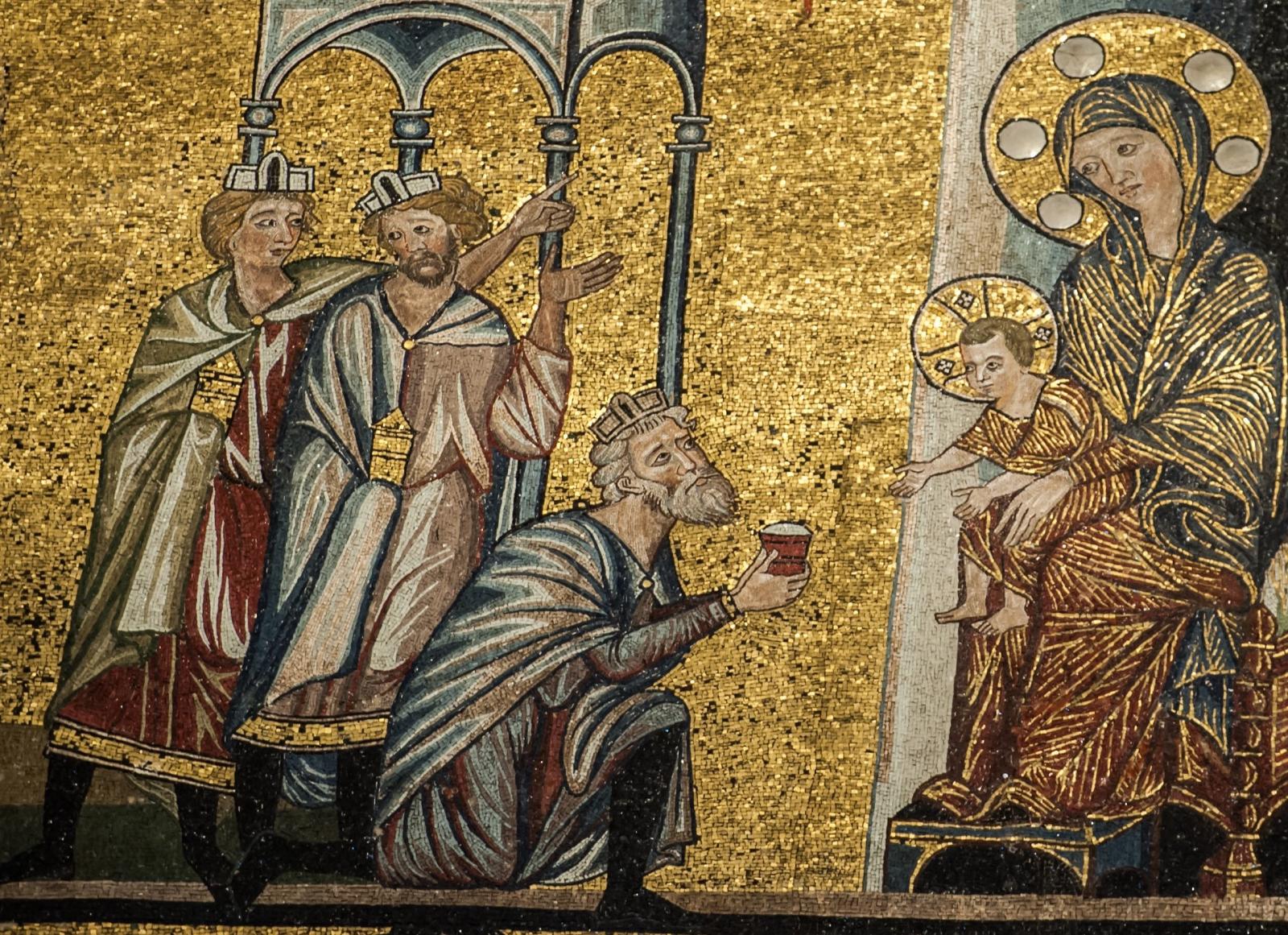By Cardinal Vincent Nichols
The coming of the Magi adds a thrilling dimension to the crib and to our appreciation of the Nativity of our Blessed Lord. How well I remember a Carol Service in the Cathedral when a beautifully attired camel came up the aisle with attendants carrying flaming torches. The moment was full of elegance and haughtiness. It was flamboyant and autocratic.
Yet the Kings knelt before the child and, in the poem we heard, the camel, too, was humbled not only by the actions of its masters but by its own response to the Infant King.
We understand well the significance of the gifts brought by the Magi: gold for the King; frankincense for the presence of God; myrrh for the suffering to come. They were costly, precious gifts.
These represent the gifts that we too are to bring. So let’s look at them a little more deeply, not least in their origins.
The origin of gold seems to be something that is still not entirely explained. I read that it is thought to have been present in the dust from which the solar system had been formed, the product of ‘supernova nucleosynthesis’, and from the collision of neutron stars. It is, therefore, something that arrives from very foundational elements and circumstances of the physical world.
Frankincense and myrrh are more easily understood. They both come from trees, from the sap of certain trees, which hardens into the resin which we recognise, in incense for example. Frankincense comes from a variety of trees, found in the Middle East and Somalia in particular. The trees are ‘bled’ so that the sap, the ‘life blood’ of the tree, oozes out, hardens and is collected. Myrrh comes from a rarer tree, in the same regions, and is produced only by a deeper wounding of the tree, repeated many times, in order to obtain its sap.
Like the Magi, we are to bring our gifts to our Saviour. Perhaps we can understand their symbolism for us in the light of their origins.
The gold we are to bring is our deepest reality, the furthest recesses of our being, so often hid from others and often from ourselves too. Only in the embrace of love do we dare to unwrap our innermost selves and let them be seen. This is the gold dust of our existence: the reality from which we have been formed. And it turns out to be written and understood in the language of love. The gold of my heart is love. The gift of my deepest self can be made only out of love and into love. The Infant Jesus is the eternal love of God who purifies my being and gives me new life. I bring my gold to him.
The frankincense we bring is our recognition of God, present in this child. Our frankincense, like that of nature, comes from the sap that arises within us and sustains our life. Here, in the presence of Jesus, we recognise that it is the mystery of God that flows through my being. It is the breath of the Holy Spirit that keeps me alive and restores my faltering spirit.
Sometimes we live by other gods. We can name them easily: those passing things which take too much of our attention, on which we pin too much of our hope. I can name mine. You can name yours, I’m sure.
Today we can seek to purify the raising of our minds and hearts and ensure that our prayer is truly addressed to the one God, and addressed primarily to give God our praise and worship. It is to God that this belongs; not to anyone or anything else. So let us bring our pure frankincense to the Lord Jesus.
The third gift is well described in the carol:
‘Myrrh is mine, its bitter perfume
Breaths a life of gathering gloom
Sorrowing, sighing, bleeding dying
Sealed in the stone-cold tomb.’
Yes, myrrh is presented to the Lord to signal his future suffering and death. And we remember that it is produced by the repeated wounding of the tree. Our gift of myrrh, then, comes precisely from the events of suffering in our own lives. When we are wounded then something of us is taken away. We are left enfeebled, weary, anxious. It can take a long time to recover. But the gift of myrrh reminds us that we can make a gift of our woundedness, of our suffering. This too we bring to the Infant in the crib, not as a pointer to his future suffering but as our contribution to it, our offering by which we wish to be united to him. This we can do individually and as a community. We offer to the Lord the pain we cause and the pain we live through. They are often intertwined.
How often, when we are in the midst of pain or suffering, we are advised to ‘offer it up’. This sound advice is made so clear in this gift of myrrh. The wise person not only kneels before the Divine Child, not only offers their gold and frankincense, but also their myrrh, all that has bled out of them in the course of pain and suffering.
Then our gifts are complete. Our gifts, too, are costly and given purely out of love.
Photo: Mazur/CBCEW.org.uk




